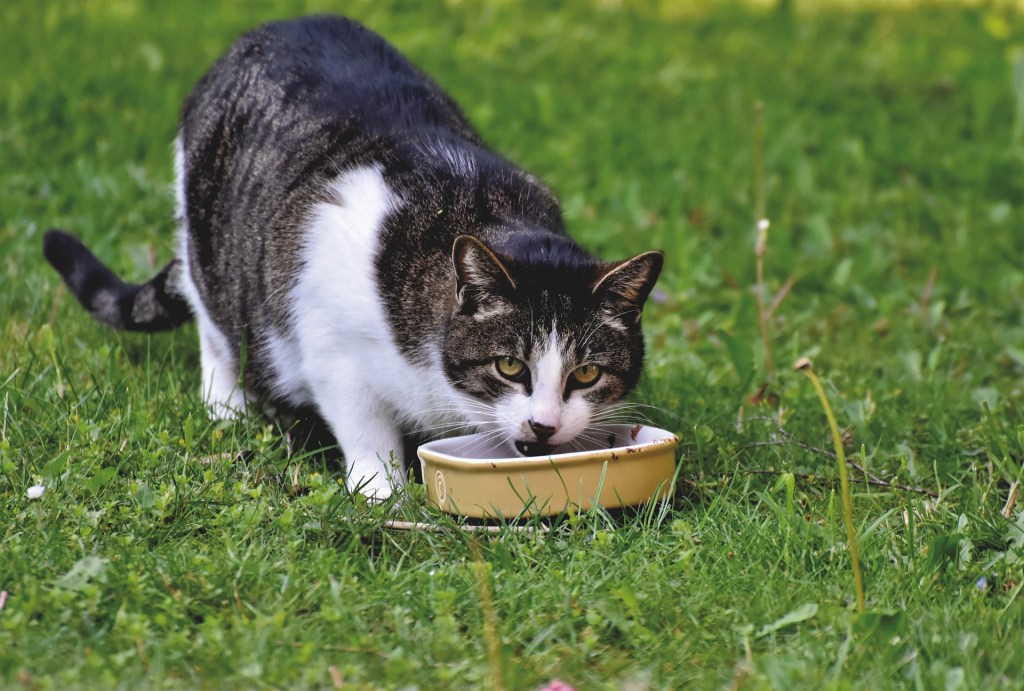If your cat is anything like mine, food is always a top priority. Every time I enter the kitchen, my cat follows, hoping she’ll get an in-between meal treat. While many kitties cherish their mealtime, some clearly love eating more than others. Some felines are just little foodies, but others may be overeating to the point of concern.
An increased appetite in cats can be caused by several reasons, ranging from boredom to medical problems. Fortunately, PawTracks is here to help. Read on below to learn why cats overeat and what you can do to help them.
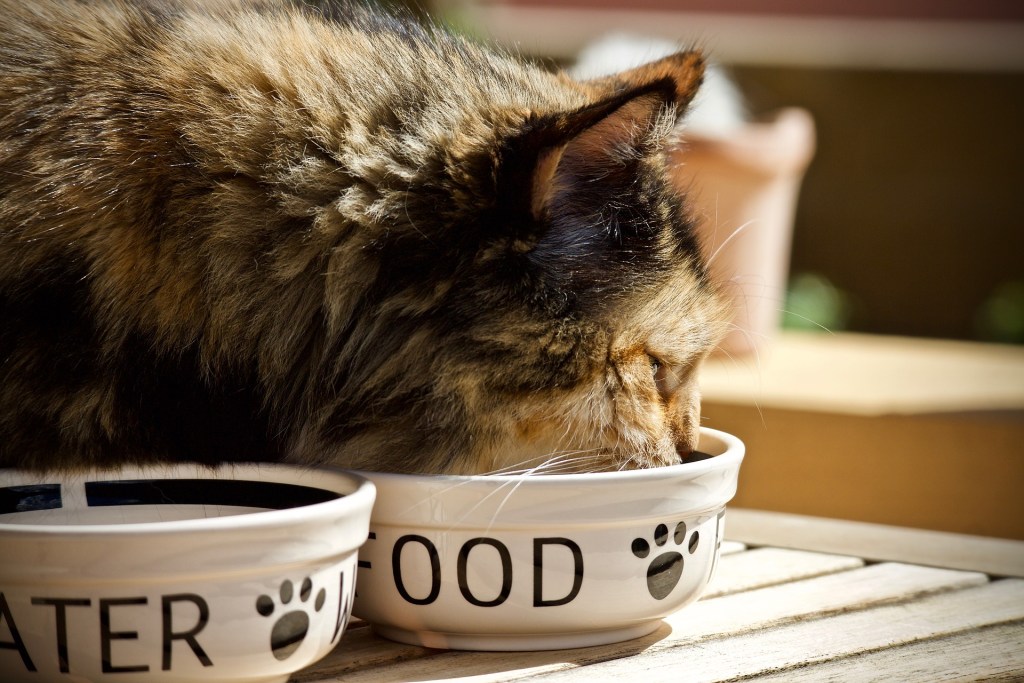
Cats who overeat could be bored, lonely, or depressed
If your kitty is eating a lot, they likely have a reason for doing so. Just like people, some cats eat more when feeling stressed or bored. Comfort food is not a uniquely human coping mechanism. Anxiety, depression, and boredom can all incite overeating, so it’s best to talk to the vet if you believe any of these issues may be the root cause of your cat’s eating problems. They may suggest giving your kitty more attention, playtime, and mental stimulation to relieve their food cravings.
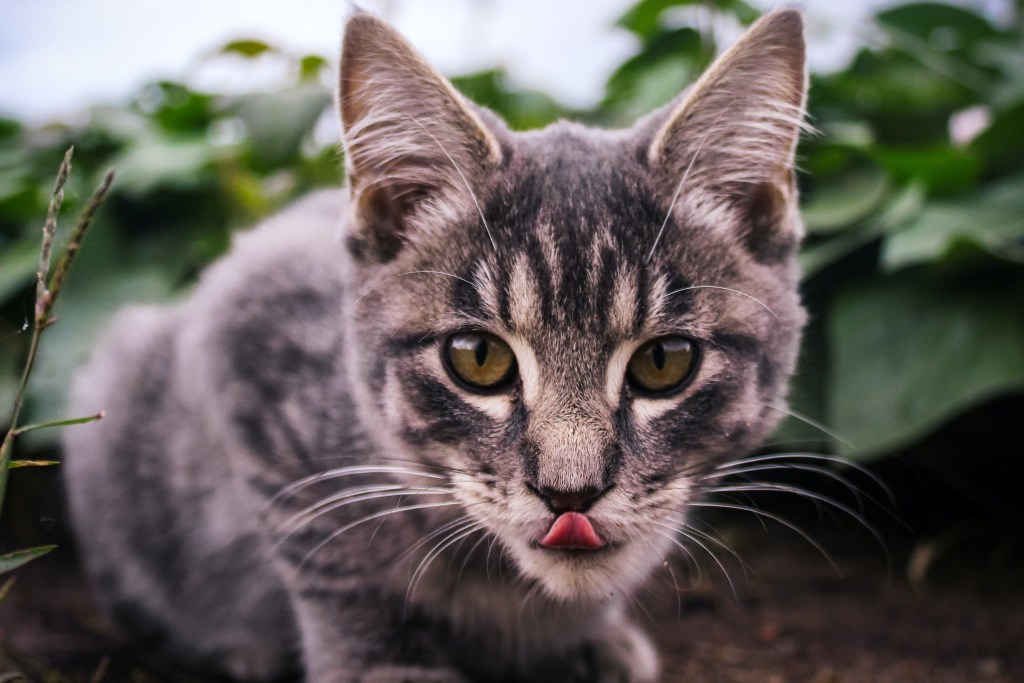
Cats may overindulge if food isn’t meeting their nutritional needs
Cats may also overeat if their food does not provide enough nutrients. Low-quality kibble will leave your cat unsatiated and hungry again shortly after they finish their meal. This is why investing in high-quality cat food that meets your feline’s daily nutritional needs is important. If you don’t know where to look — ask your vet!
However, a cat’s age may also come into play. As cats age, they become less able to digest proteins and fats. At the same time, they need more energy to do the same activities. Because of this, your senior cat may begin eating more to get the calories their body needs. If this becomes a pattern, it may be time to switch to a cat food meant for older cats.
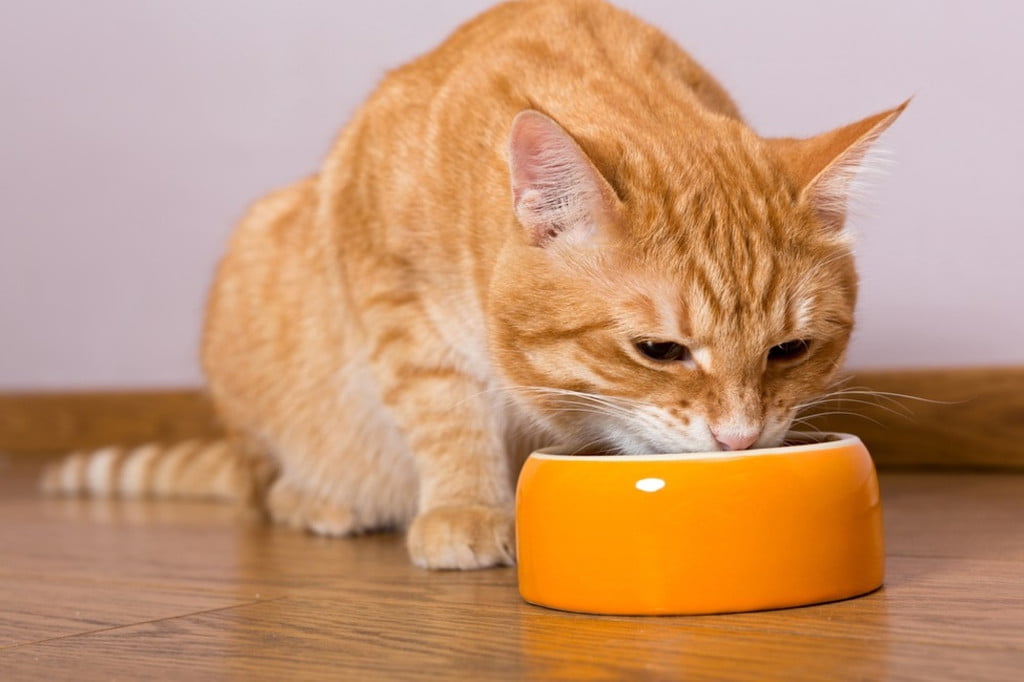
Some medical conditions can cause cats to overeat
Some ailments — like diabetes and hyperthyroidism — can also cause your cat to eat more than usual. If you find yourself wondering why your cat loses weight while overeating, they may have one of these illnesses. Diabetes prevents your cat’s body from converting sugar to energy efficiently, and hyperthyroidism causes their metabolism to burn too many calories. Your cat may begin overeating to compensate and get the necessary nutrients.
Bowel problems and parasites can also increase your cat’s appetite. Diseases like inflammatory disorders or intestinal cancer that impact the small intestine can decrease your cat’s ability to process nutrients. This results in an increased appetite and weight loss. With roundworms, your cat may be constantly hungry because the parasite steals all their nutrients before their body can process them.
Pancreatic disease can also cause your cat to be hungry all the time. The pancreas produces enzymes that aid digestion but with exocrine pancreatic insufficiency (EPI), the pancreas cannot do its job. This may cause your cat to experience an increased appetite, vomiting, diarrhea, and weight loss. If you suspect your cat has a medical problem, take them to the vet for a proper diagnosis and treatment plan.
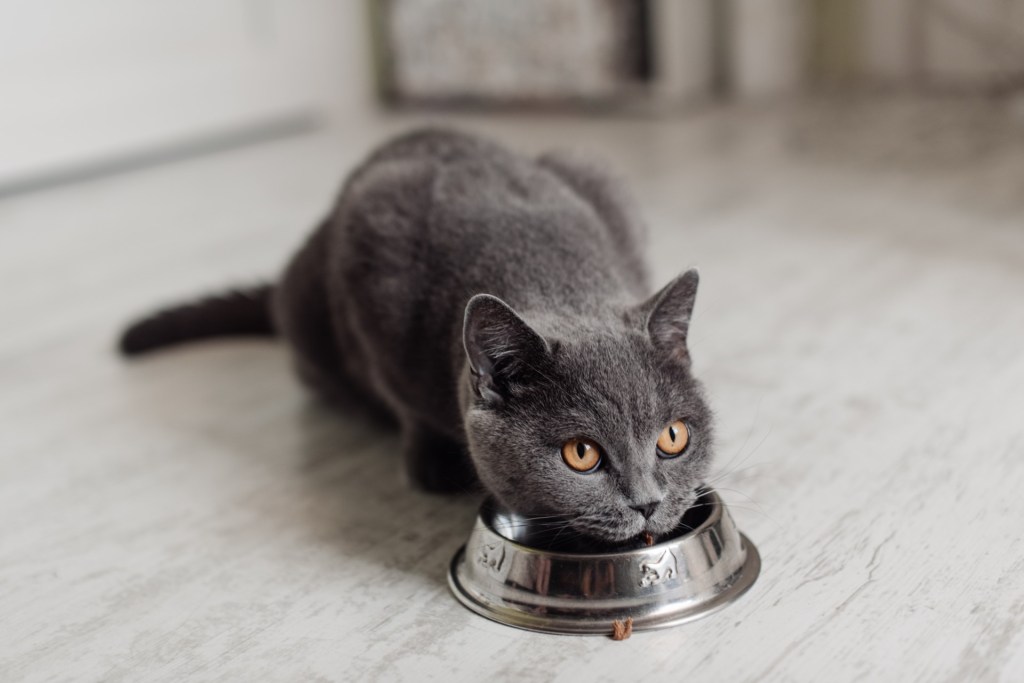
Cats who overeat can also be at risk for medical problems
It should come as no surprise that overindulgence comes with its risks. The most obvious concerns are weight gain, heart disease, and diabetes. In fact, Green Cross Vets explains that “regular, long-term overfeeding can lead to death.” That may sound scary, but you can use this information as motivation to change your cat’s diet.
An obese cat is at much higher risk for concerns such as heart disease, liver disease, pancreatitis, diabetes, and limited mobility. It’s not worth it! Thankfully, changing your kitty’s feeding schedule can be a great tool to help your cat lose weight if needed. Better yet, it can help you stay on top of overeating before it becomes a problem, too!
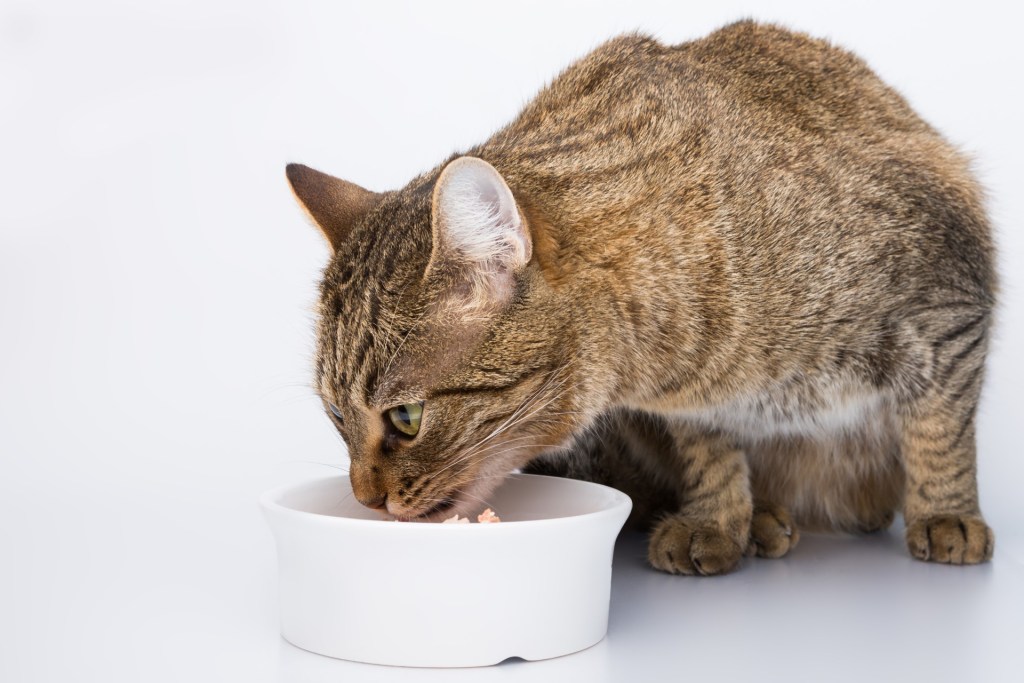
How to help your overindulgent cat eat less
If your cat eats too much, you should check with your vet before anything else. They can help determine why your cat is overeating, treat any medical problems, and recommend how to prevent them from eating more than they should. Here are a few tips to help you get started.
- Don’t fill the food bowls whenever they’re empty or let your cat free-feed. Instead, stick to a set feeding schedule. Healthy adult cats only need to eat once or twice a day. Limit the number of times you refill the bowl daily and only do it on a schedule.
- Monitor how much food your cat eats daily. You may not even realize how much you’re overfeeding them. Use measuring scoops to dish out their food and follow the serving size recommended by your vet or the packaging.
- Pay attention to the food’s nutrition. Even if your cat eats a lot, they may not be getting all the nutrients they need. Consider switching to a higher quality cat food that provides them with the vitamins and minerals they need to be healthy.
- Use a slow-feeding bowl. These are food bowls with bumps that make it more difficult for your cat to reach their food and cause them to eat slower. For cats who eat when they’re bored, this can provide some much-needed stimulation, too.
- Make mealtime a game. You can try ditching the bowls and hiding small amounts of dry food around the house instead. This will stop them from eating too much and prompt them to use their natural hunting instinct to locate food. You can also purchase feeding toys, which automatically dispense food as your cat plays with them. Not only does this limit the amount of food they eat, but it will also provide them with some exercise.
- If your cat is lonely or stressed, give your pet more attention. Some cats beg for food because they know it gets your undivided attention. Schedule 15 to 20 minutes daily to play with your cat and try your best to eliminate any stressors in the home.
While there are many reasons why your cat could be overeating, there are steps you can take to help them. By visiting the vet and using the helpful tips above, you can determine why your cat is always hungry and prevent them from eating too much. Soon enough, their eating habits will return to normal, and you both can feel relaxed again.
